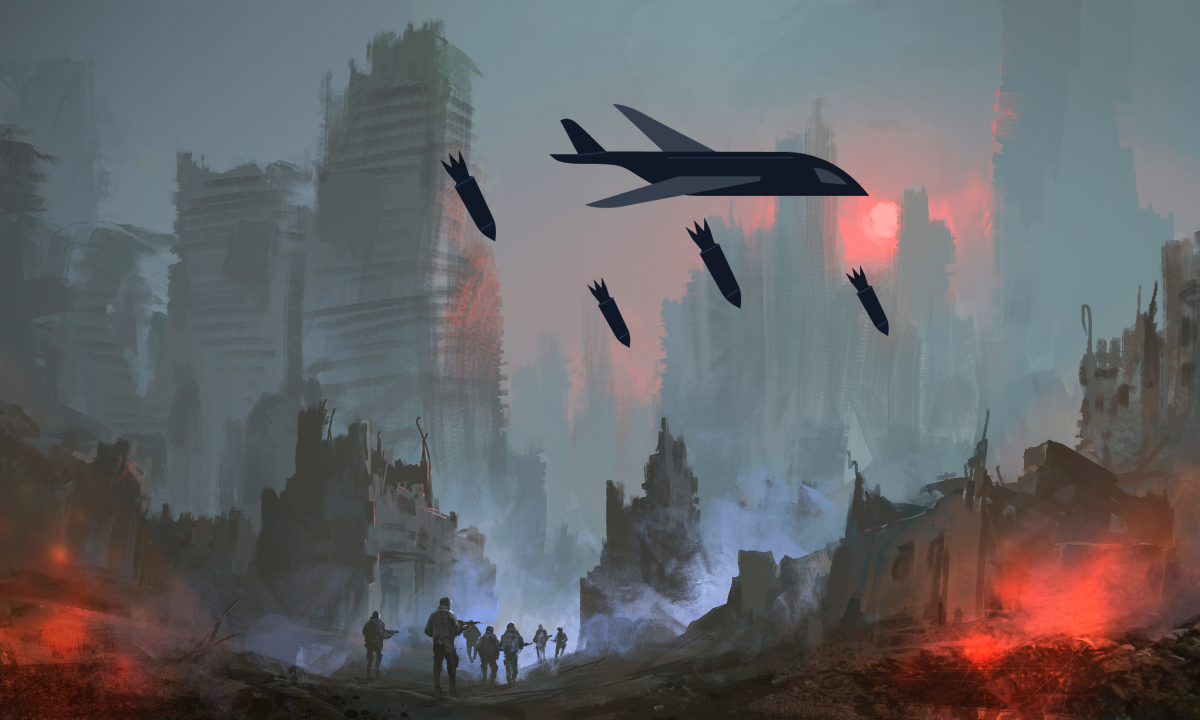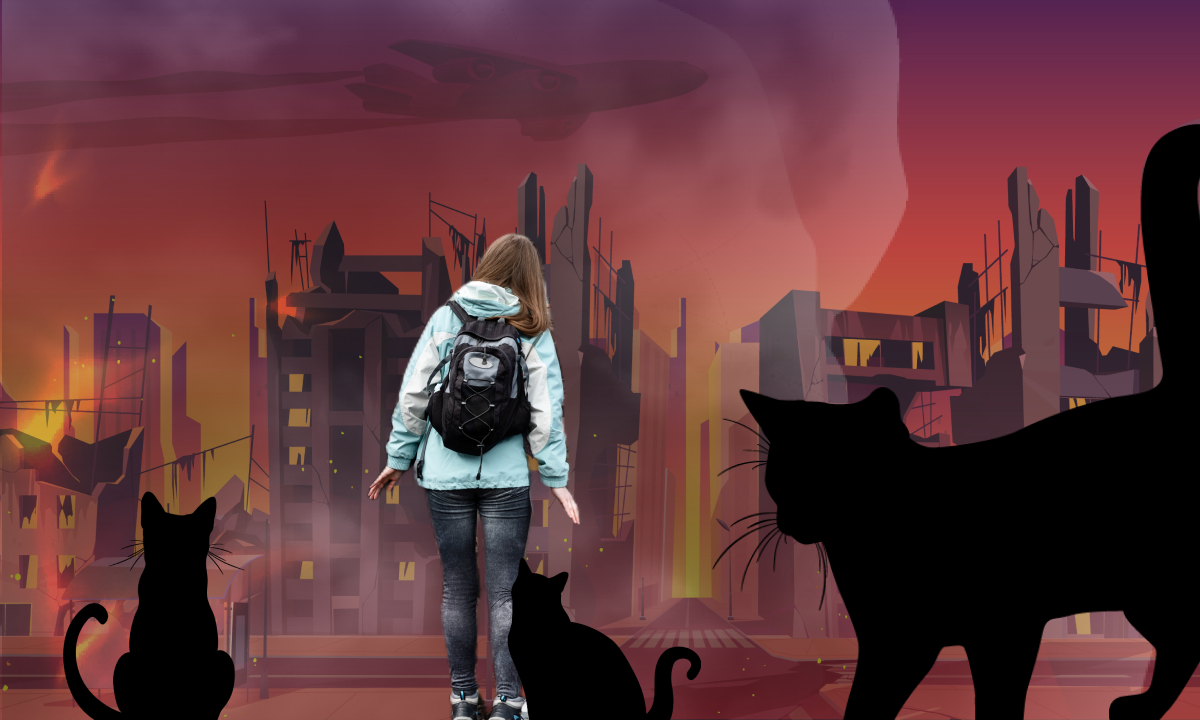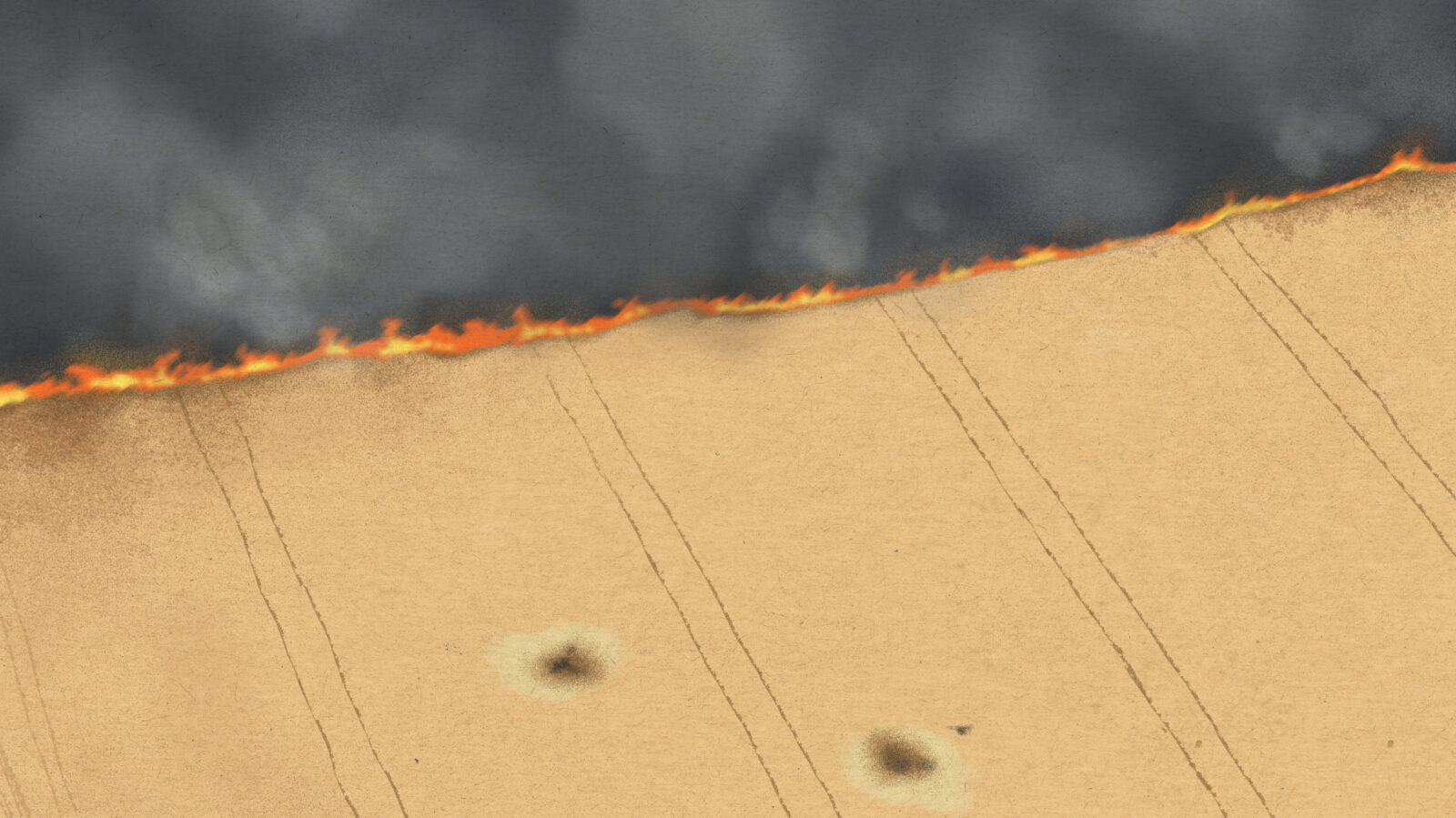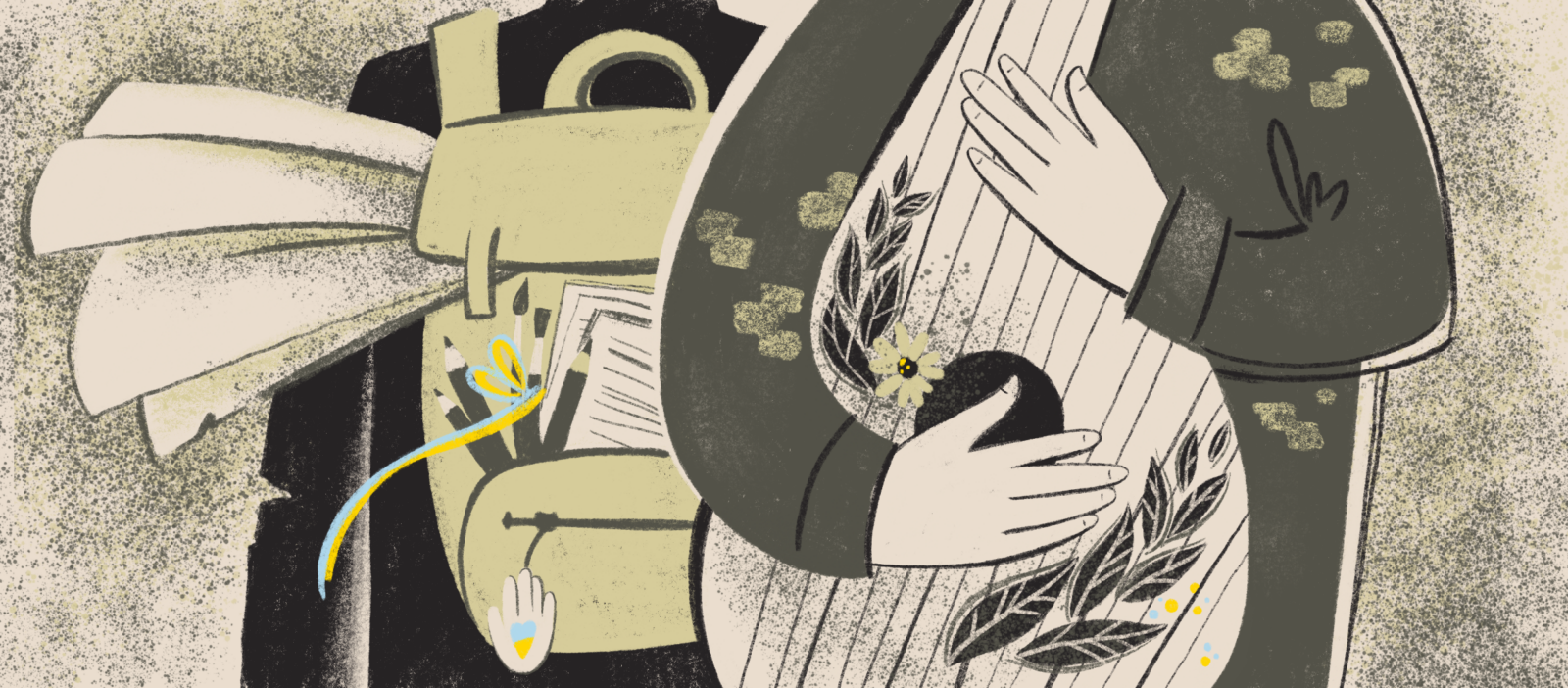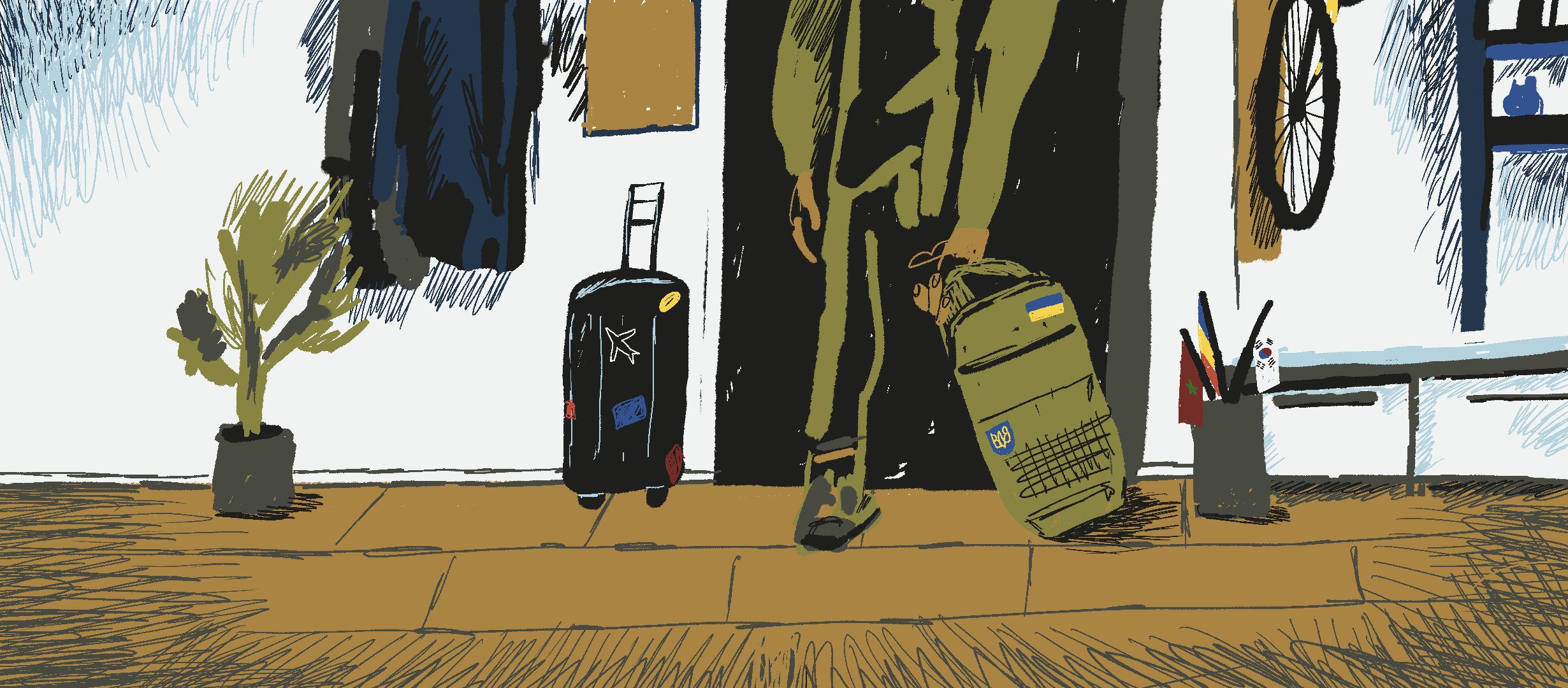“I came out of the bomb shelter, and the wave from an explosion pressed me against the wall,” Ivan, 16, Kharkiv.
“It’s scary to sit at home when a shell can hit your head,” says Ivan. Before the war, the boy studied to become a car mechanic and was seriously engaged in football. He arrived from Kharkiv to Lviv on March 16 together with his girlfriend Iryna, who has hearing impairments.
He lived in New Bavaria, a district of Kharkiv. He says that the Russians bombed houses, dormitories and shops there. “Thirty years ago there was a military base in one of the buildings, and now there is a furniture factory. They had outdated data, so they destroyed it as well,” the young man says. He remembers how a blow once hit the gas station and it exploded. It felt like another sun appeared in the sky.
“I recently talked to friends. They said that a shell hit some people’s apartment. All the neighbors ran together and started putting out the fire. The second shell killed everyone,” says Ivan. According to Ivan’s friends, the city still has electricity, water, food is brought by volunteers, and communal services work in some neighborhoods.
The most terrible thing for Ivan was the sound of a plane. It is impossible to predict where it will fly and drop bombs. “The cruise missile flies and you hear it. And when the plane is over you, it’s a shock, it’s just a shock. The pilot sees where he is dropping the bombs,” says Ivan. When the war broke out, “Temporary bomb shelter” signs were immediately posted on the basements of houses. Ivan lived on the sixth floor and went downstairs with his neighbors, but explosions could also be heard in the basement. They were also hiding in the apartment, in the corridor and the bathroom. “At least there is hope underground. All we had left was praying to God whether the missile would fall on us or not. That’s it,” Ivan smiles.
“The cruise missile flies and you hear it. And when the plane is over you, it’s a shock, it’s just a shock. The pilot sees where he is dropping the bombs.”
In the shelter, women and children tried to sleep, and men were on duty. Ivan says he slept three hours a day. He lost five kilograms because of stress. He recalls that the shooting started at 9 p.m., and the worst was at 4 a.m. “I came out of the bomb shelter, and the wave from an explosion pressed me against the wall. Although I didn’t even see exactly where the explosion took place,” Ivan recalls. He says that this horror cannot be understood until you face it.
The young man recalls that in the early days there were huge queues at the shops. People panicked, some cried, they bought everything: canned food, meat and even ice cream. Later, people began to deliver various foodstuffs centrally, bread was given—two loaves per person. “Bread was brought from our factory. It was not even unloaded at the shops. A small van came, they said, ‘15 hryvnias, two loaves in one pair of hands,’” says Ivan. He recalls that once he was the seventh in the queue, and when he went inside, half of the goods were gone. “There were thirty more people behind me, they had almost nothing left. One store closes, another opens—everyone runs there at once. Later, however, they started to bring humanitarian aid,” says Ivan.
It took him five days to get from Kharkiv to Lviv driving with friends. They spent the nights wherever possible: in hotels, near gas stations. There they managed to wash their clothes and eat normally at least once a day. Ivan says that just sleeping when you are not being bombed is happiness. There were huge traffic jams everywhere along the way. Sometimes they were stuck in standing traffic for four to five hours.
“I recently spoke to a volunteer at the station. It turned out that he was from Bucha. I asked, ‘What do you have left there?’ He replied: ‘Just a hole’. And that’s it.”
Ivan has family in a town on the border with Russia, his mother and grandmother with disabilities. Russian troops are now stationed there. “To take my grandmother out, first of all, I need a special car. It costs a lot of money. Second, there is no road left. They say that the trains are no longer running because they bombed the line. The most important thing is that there is still something to eat,” says Ivan. He calls his mother every day, there is still a connection.
Ivan did not take any valuables or memorabilia with him. He jokes that the car is not made of rubber (meaning that it can’t fit everything), so he only took his papers and clothes. “I do not want to leave the country. I’ve never been abroad before,” says the young man. “If I get the refugee status, I will not be able to return home immediately. If the war is over in a month and classes start at school, how will I catch up? I will miss everything. In our country, people will always help and talk to me.”
“I remember listening to my grandparents telling stories about the war. They said that food is the most important thing, if there is a bag of potatoes, then there is life. After the war, it will probably be the same, everyone will stock up on food. A good car is nice to have, but how will it save you from starvation during the war?”
Translated by Alina Tsvietkova





